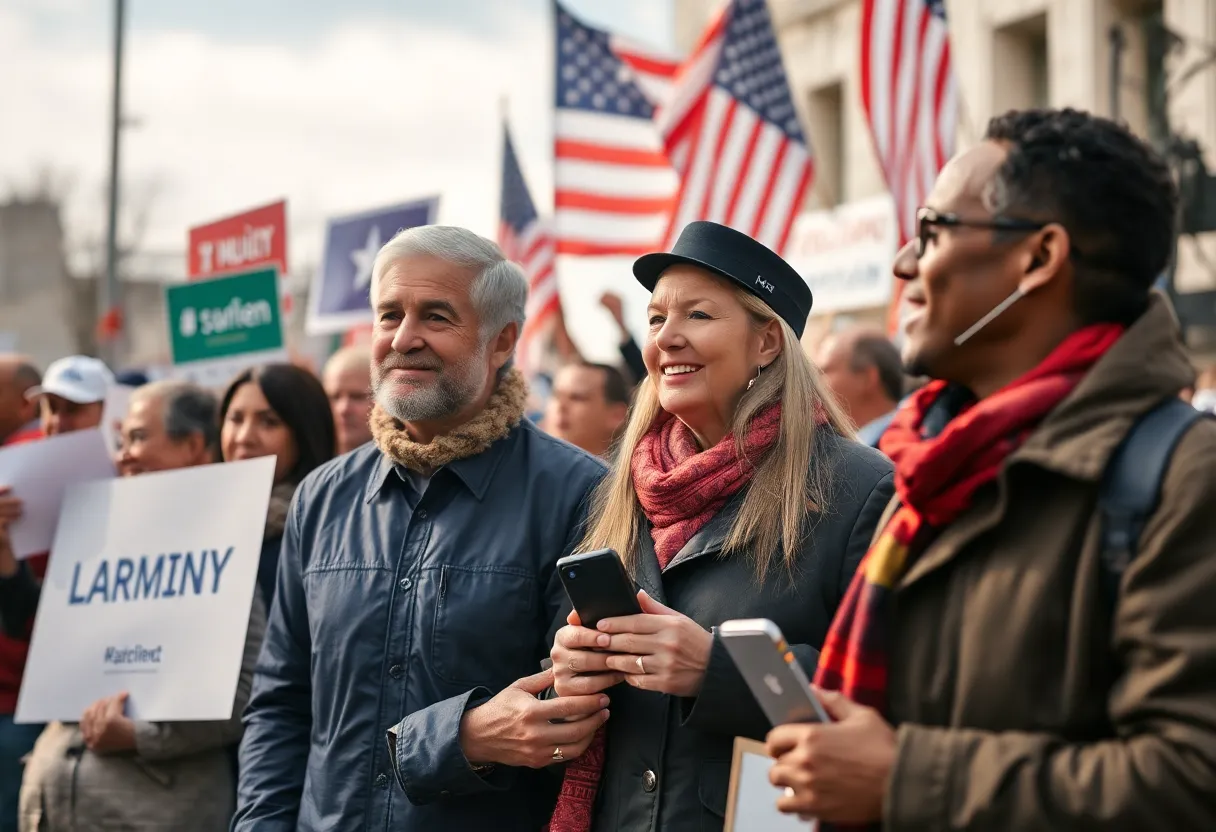

Brands are adapting their marketing strategies during the politically charged election year.
Article Sponsored by:
Real Internet Sales is a digital marketing agency located in Columbia, South Carolina. We specialize in website design and development, SEO, social media management, online advertising, AI integration, and workflow automation. Our services also include affiliate marketing and digital strategy.
Real Internet Sales also offer specialized programming for real estate firms, using IDX and RETS feeds to automatically populate MLS properties on their websites for improved property listings and sales. We also work with clients in the restaurant, tourism, and e-commerce industries to enhance their digital presence and streamline operations.
As the hustle and bustle of an election year unfolds, cities across the U.S. are buzzing with anticipation, and the marketing world is feeling the heat. With November 5 right around the corner, brands are treading carefully, trying to navigate the turbulent waters of political conversations while keeping their customer base intact. It’s a tricky time, to say the least.
With emotions running high, brands face a real challenge when it comes to voicing their political opinions. A recent survey revealed that 22% of U.S. consumers stopped purchasing a product due to a brand’s political stance over just three months. That’s a significant number! Also, about 18% of individuals unfollowed a brand or influencer for similar reasons on social media. In light of this, it’s no wonder that a whopping 82% of marketers are anxious about how to approach marketing during this heated presidential race.
With the landscape seeming more divisive than ever, brands are trying to connect with consumers on a more emotional level. Some are hitting it right on the nose by offering warmth and comfort in these uncertain times.
Take Stonyfield, for example. This organic yogurt brand has launched the “Toxic Free Election Challenge,” encouraging folks to log off social media leading up to the election. The idea is to combat the “digital toxicity” prevalent during turbulent times, all while giving participants a chance to win a crisp $1,000. Kristina Drociak, the brand’s director of public relations, explains, “The brand saw an opportunity to extend its message to encourage a break from social media.”
The response has been fantastic! In just two weeks, 2.1 million individuals agreed to cut back on their social media usage. That’s a huge testament to how brands can resonate with their audience when they focus on pushing positive messages.
However, it’s not all sunshine and rainbows. Research indicates that many Americans are feeling overwhelmed and are shying away from political content online. Around one-third of the population is steering clear of political discussions for reasons such as feeling overwhelmed or negatively impacted. Interestingly, 35% of Americans decreased their social media usage in recent months, and half of those people attributed it to political discussions.
This partisan struggle means that brands have to be careful when wading into political waters. Many consumers who’ve disengaged from social media were also reacting to brands’ political posts. Research indicates a meaningful percentage of these consumers had previously bought products after seeing them on platforms like Facebook and Instagram.
Despite the challenges, experts suggest that brands shouldn’t necessarily withdraw their advertising dollars during this time. Instead, they should seize the moment to strengthen their emotional bonds with customers and build awareness across key demographics. For instance, 30% of millennials appreciate when consumer brands take a political stand, while only 9% of baby boomers feel the same way.
To effectively engage audiences, brands can adopt creative strategies that don’t overtly involve political messaging. For instance, Red Lobster launched a humorous campaign called “Cheddar Bay 2024,” aiming to unite diners regardless of their political views. Their lighthearted approach surrounded cravings for cheesy biscuits rather than contentious political debates.
Meanwhile, Aloft Hotels has opted for a more adorable angle by introducing a dog-led meditation video to alleviate stress about the upcoming election. They’re also hosting “Not Watch Pawties” to allow guests to cuddle with shelter dogs during election day.
Nevertheless, navigating this landscape isn’t without its risks. Generative AI’s emergence presents new challenges, such as the potential for deepfakes and misuse by bad actors, which brands must prepare for. Forrester’s insights emphasize that brands need to take proactive measures if they want to avoid becoming collateral damage this election season.
In conclusion, while brands are grappling with how to position themselves in a charged political environment, many are finding creative solutions to connect and resonate with their audience. With the election right around the corner, we will undoubtedly see how these strategies unfold and what they mean for both consumers and brands alike.

7001 St Andrews Rd #329 ,
Columbia, SC 29212,
United States
Phone: (+1) 803 708 5514
News Summary Castle Peak Holdings has officially acquired the Snow King Resort, marking a significant…
News Summary On April 11, 2025, Mikal Mahdi became the second inmate executed by firing…
News Summary Manitowoc Company, Inc. is enhancing its presence in the Southeastern U.S. by acquiring…
News Summary South Carolina has been recognized as the top growth state for 2024, according…
News Summary The Nuclear Company has established its engineering and construction office in Columbia, South…
News Summary South Carolina's travel and tourism industry has experienced a significant 65% growth over…